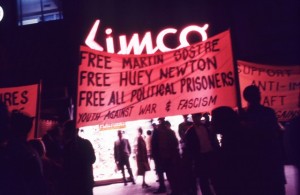Martin Sostre: Legal Advocate, Prisoner, Revolutionary…
When I mention the name Martin Sostre, what comes to mind? For many, his name will conjure no images or words. Yet he was a man who made a real impact in terms of prisoner rights in the United States.
Martin Sostre was the owner of the Afro-Asian Bookstore in Buffalo, New York. On July 14, 1967, the police raided his store and arrested Sostre on “narcotics, riot, arson, and assault charges.” After the riot and arson charges were dropped, Sostre was tried by an all-white jury and convicted of selling $15 worth of heroin. He was given a sentence of 31 to 41 years in prison.
This short summary does not of course do justice to Martin Sostre nor to his legacy. Prior to the 1967 police raid, Sostre had already spent a dozen years between 1952 and 1964 locked inside Attica prison on a narcotics conviction. He was known to the police in Buffalo and suspicion surrounded him because he had converted to Islam (in the 50s while he was incarcerated) and was also outspoken against the injustices of racial and class oppression.
A couple of weeks before he was arrested in 1967, a riot erupted in Buffalo. Law enforcement targeted Sostre as the instigator of this disruption without providing any actual evidence for their accusation. Those who knew Sostre were certain that the police were framing him with trumped up charges. A defense committee was established to help free him. He was supported by both the Young Lords and the Black Panthers. Soon after his conviction, the only witness to his so-called crime recanted his testimony and said that the police had framed Sostre. Eventually on December 24 1975, Martin Sostre was granted clemency by the Governor of New York, Hugh Carey. He had spent 7 years behind bars for a crime that he had not committed.
Sostre was a black Puerto Rican who had grown up in Harlem. When he was first released from prison in 1964, he decided to establish a bookstore where black youth in particular could learn about their history and themselves. His bookstore served as a political education center for people of color in Buffalo. Growing up in New York City, I first found a copy of Sostre’s letters from prison in a Harlem bookstore when I was 16 years old. Interestingly, it was Sostre (in part) who led me to then take a job for one year at the Countee Cullen library (as a library information specialist) adjacent to the famed Schomburg Center for Research in Black Culture. I remember that year as one of the very best of my life. I was able to engage both my love of books and my love of history.
 While he was incarcerated, Sostre became a jailhouse lawyer and a very vocal advocate against solitary confinement. He was repeatedly put in solitary confinement during the course of his 22 total years behind bars for such offenses as being in possession of contraband books and distributing religious materials.
While he was incarcerated, Sostre became a jailhouse lawyer and a very vocal advocate against solitary confinement. He was repeatedly put in solitary confinement during the course of his 22 total years behind bars for such offenses as being in possession of contraband books and distributing religious materials.
When he was put in solitary confinement in 1968 for practicing law without a license, he fought back with a lawsuit against prison officials and the state of New York. In Sostre v. Rockefeller, he claimed that solitary confinement was “cruel and unusual punishment.” In legal briefs, Sostre railed against his treatment at the hands of prison officials who he believed were denying him basic human rights. He characterized their actions as a “mental sickness of these barbaric racist defendants who still consider eating, personal hygiene, exercise and fresh air . . . a privilege, and punish prisoners by denying them these basic necessities which even animals enjoy (Copeland, 1970: 169).”
Sostre won a temporary court victory and damage fees when Judge Constance Motley released him from solitary and stated that he was there “not because of any serious infraction of the rules of prison discipline,” but for legal and political activities and beliefs.” She also ruled that the punishment of solitary confinement is “physically harsh, destructive of morale, dehumanizing. . . degrading and dangerous to the maintenance of sanity if continued more than 15 days.”
Sostre filed and won several other lawsuits while incarcerated. He is still alive and lives in New York City with his family. To my knowledge, there has been no biography written about his life which is a real shame. For those who want to know more about the man and his work as a jail-house lawyer, there are a couple of out-of-print books that you can consult. If you care about prisons, social justice, and the history of civil rights, Martin Sostre is a name that should not be lost to history.

